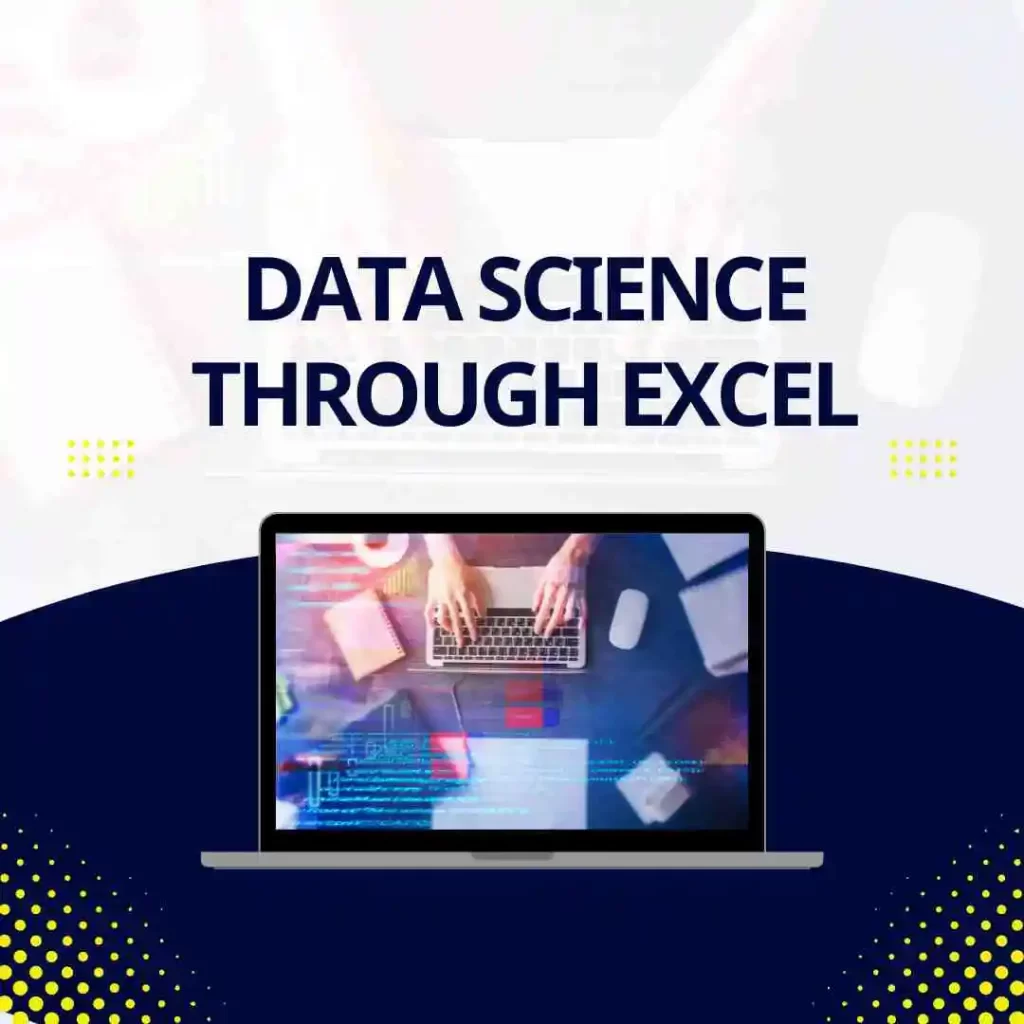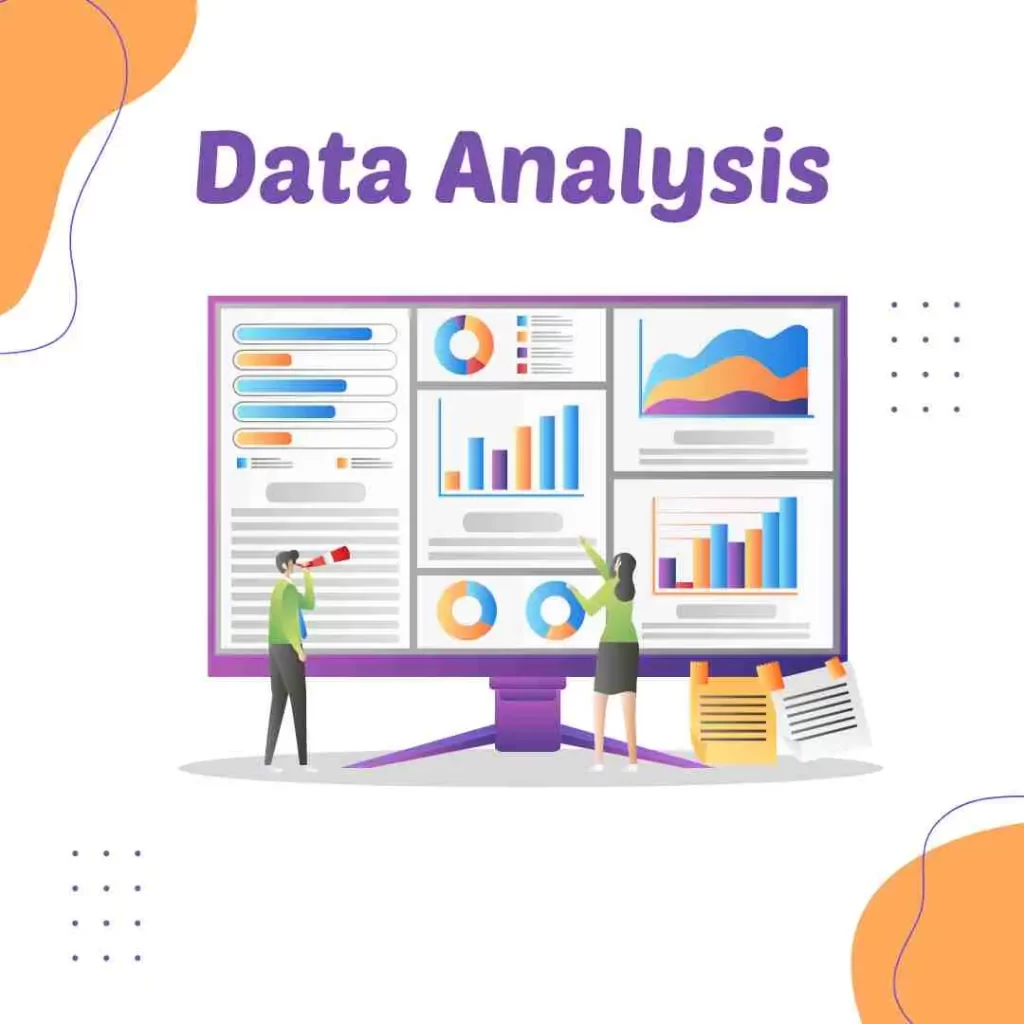
Data Science through Excel
- 1,8k+ Students
- 3h 15min
- 5.0 Reviews
Discover the potential of Excel as a tool for data science. Learn data cleaning, visualization, and statistical analysis. Dive into PivotTables, PivotCharts, and predictive modeling. Master time series analysis and data mining. Real-world case studies illuminate concepts. Start your data science journey with Excel today!
Rs.999 Only Rs.499/-
What you'll learn
- Introduction to Excel
- Reading Data into Excel
- Basic Data Manipulation
- Basic Formula & Expression
- Data Analysis Formula
- Data Filtering
- Advance Filtering
- Sorting of Data
- Conditional Formating of Data
- Interactive Charting
- Retail sales Data Analysis with Data Analysis toolbox
- CRM Data Analysis
- Dashboard Creation
What is Data Analysis Course ?
Excel for Data Science
Excel is a powerful tool that can be used for data science. It can be used to clean, analyze, visualize, and model data.
📊Data cleaning is the process of removing errors and inconsistencies from data. This is an important step in any data science project, as it ensures that the data is accurate and reliable. Excel has a number of tools that can be used for data cleaning, such as the Find and Replace function, the Remove Duplicates feature, and the Text to columns feature.
📊 Data analysis is the process of exploring and understanding data. This can be done by using Excel’s statistical functions, such as the mean, median, and standard deviation, or by creating charts and graphs to visualize the data.
📊 Data visualization is the process of representing data in a way that makes it easy to understand. This can be done by creating charts, graphs, and other visual representations of the data. Excel has a number of chart and graph types that can be used for data visualization.
📊 Data modeling is the process of creating a model that describes the relationships between variables in a dataset. This can be done by using Excel’s statistical functions or by using specialized data mining tools.
This guide will teach you how to use Excel for data science. It will cover the following topics:
- Data cleaning
- Data analysis
- Data visualization
- Data modeling
The guide also includes a number of hands-on challenges and case studies that you can use to practice your skills.
Whether you are a beginner or an experienced data scientist, this guide will help you learn how to use Excel for data science.
Embark on your data science journey with Excel!
Why you should Learn Data Analysis through Excel ?

Easy to Get Into Any Field: You know how Excel is like that one friend you can count on no matter what? Well, it's just as handy for professionals in all sorts of jobs – from finance to marketing, and even healthcare. So, if you're curious about data and want a skill that works everywhere, learning data analysis with Excel is your go-to move.

No Coding Overload: You don't need to be a tech wizard to start diving into data analysis. Excel's like a magic wand that lets you do cool stuff without needing to know crazy programming tricks. With its menus and clicky features, you can clean up data, make it look super cool with charts, and even do basic number tricks. No need to stress about complex coding – just focus on the exciting parts of understanding data!

Rock Solid Foundation: Think of Excel as the superhero origin story for data skills. When you learn data analysis with Excel, you're building a strong base. You'll figure out how to clean up messy data, turn numbers into pictures, and do simple math tricks. Best part? These skills are like secret weapons you can take with you to other tools like Python or R when you're ready for bigger challenges. It's like leveling up in a game – but for data!
Start Your Career with Us
Get Free Counseling Now





Job Assistance
80% Practical Training
Personalized Career Coach
Instant Doubt Solving
No Cost EMI option
20+ Case studies & Projects
What courses does your computer institute offer?
We offer a wide range of courses including Web Designing, Digital Marketing, Cyber Security, DCA (Diploma in Computer Application), ADCA (Advanced Diploma in Computer Application), and more.
How long do your courses typically last?
Do I need any prior experience or qualifications to enroll in your courses?
What are the career prospects after completing a course from your institute?
Our courses are designed to provide you with the necessary skills and knowledge to pursue a successful career in the respective field. After completing our courses, you can explore job opportunities as a Web Designer, Digital Marketer, Cyber-Security specialist, or other related roles. We also offer placement assistance to our students.
What are the fees for your courses?
The fees for each course may vary. Please refer to the specific course page or contact our institute directly for detailed information regarding the fees.
Are there any flexible learning schedules available?
Yes, we offer flexible learning schedules to accommodate the needs of our students. We have both full-time and part-time course options available. You can discuss your preferences with our team during the enrollment process.




